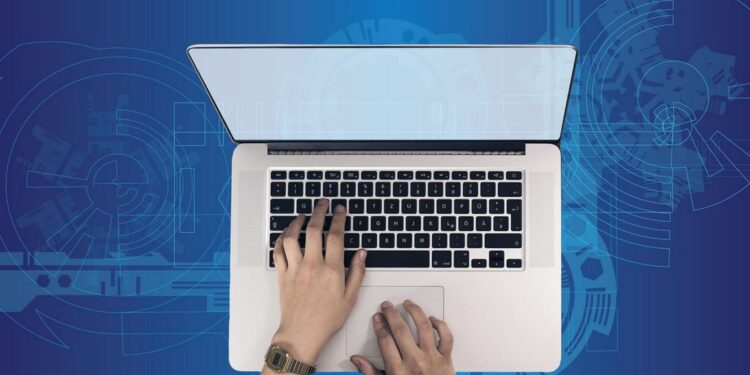Traditional gaming is continuously evolving in matters of visuals, storytelling, and community engagement. However, as prominent gaming companies expand by acquiring smaller indie businesses, the gaming sector is affected by the lack of innovative talent and ideas.
The problem with centralized firms in gaming is that they restrict creativity and are inherently driven by profit, which is why many traditional games feature numerous microtransactions. Luckily, the era of decentralized gaming is emerging, with developers refining their skills to create better games on blockchain.
Blockchains like Ethereum and Solana have become the primary option for developers to contribute to decentralized gaming, but other networks, such as XRPL, also contain an impressive library of games. The platform enables transparency, trust, and decentralization in gaming through creations like MetaMap and Archer Hunter, and the price of XRP USD demonstrates support for developers who want to receive incentives.
Therefore, decentralized gaming has the potential to address challenges and improve the industry. Here’s how.
Blockchain allows players to own their assets
In many cases, when purchasing a game online, users still don’t own it, and this applies to their in-game assets as well. Therefore, gamers’ investments are in vain, which is a common frustration in the communities nowadays. On the other hand, decentralized games and their assets are earned and owned by the player, not the developer or the underlying company.
Most of these assets come in the form of NFTs (non-fungible tokens) that reside independently on the blockchain and serve as proof of ownership. Users can keep, trade, or sell them on open marketplaces without any consequences, since they belong to a decentralized network.
Blockchains are more transparent and secure
Blockchain is one of the most transparent types of modern networks, as anyone can verify the provenance of an asset as it’s being recorded on the ledger. Developers don’t have to rely on a central authority to deploy their games, since the distributed ledger is maintained by worldwide nodes and contributors. At the same time, data is recorded in multiple locations permanently.
When it comes to security, blockchain technology ensures it through a consensus mechanism that validates blocks, so every transaction is correct. Tampering with data on the blockchain is almost impossible, considering that each new block is linked with all the blocks before in a cryptographic chain. Therefore, data breaches and cybersecurity attacks are not that easy to operate in a blockchain.
Blockchains offer monetization models
With blockchain gaming, players don’t have to only pay for their in-game assets, but can also earn rewards through play-to-earn (P2E) models. These systems enable gamers to earn in-game assets, such as NFTs, and transact them in various ways, as well as exchange them for prominent cryptocurrencies like Bitcoin, and then withdraw the funds.
According to Catherine Chen, Head of VIP & Institutional at Binance.com, “Bitcoin is maturing into a macro-sensitive asset: increasingly influenced by monetary policy, central bank actions, and global money supply changes, rather than just crypto-native events like halving cycles.” Hence, P2E games are gaining traction and becoming profitable for gamers.
What are some of the best blockchain games?
Blockchain games are gaining popularity among gamers. They’re driven by creativity and support of innovative tools, such as smart contracts and multiple layers of security. Therefore, there are some great movies on decentralized marketplaces, such as the following:
- World of Dypians is an adventure game with a dynamic world, where users discover the world of Dypians, complete legendary quests, and earn rewards by staking tokens;
- Pixudi is a race board game with players earning treasures by competing against each other in a retro design. Gamers can collect items or breed pets to improve their stats and trade;
- Lumiterra is an open-world survival crafting game for players who like to farm with friends and collect creatures. It is free to play and comes with NFT support for the P2E (Play to Earn) technology;
What are some challenges blockchain games face?
While blockchain gaming has a massive potential to evolve the industry, its progress is hindered by several factors, including the user adoption rate. The few people who trust blockchain technology and know how to navigate these networks, as well as control their P2E rates, are insufficient to drive forward adoption and innovation. Additionally, traditional gamers are skeptical about blockchain games due to a lack of understanding.
Unfortunately, blockchain has its limits that contribute to this skepticism, including scalability issues. Not all blockchains can support a high volume of transactions, which is common when certain networks become popular due to their varied array of tools and products. When scalability is not on point, this triggers network congestion due to massive traffic and leads to a surge in gas fees.
Ultimately, blockchain technology is struggling to navigate the complex and unclear regulations surrounding decentralized technology. While governments and financial bodies lack the understanding of how blockchain could help them, their uncertainties hinder innovation and progress.
What is the future of blockchain?
Blockchain technology can automate repetitive tasks and provide communities with a secure and transparent network for data transfers and transactions. Therefore, it paves the way towards a better future where user experience is achieved more efficiently and blockchain solutions are accessible to everyone globally.
With sufficient awareness and development, blockchain will become a key component in industries such as supply chain management, cloud storage, and cybersecurity. Hence, it will be able to manage complex systems across industries, offer its decentralized security, and make cryptographic algorithms the norm for worldwide companies. Moreover, it could expand and improve asset tokenization for metaverse game development and blockchain game development.
Final considerations
Blockchain technology is an innovative tool for gaming, as it provides unique development tools, fosters strong communities, and offers opportunities for innovation within the industry. Blockchain ensures users can own their in-game assets in a transparent ecosystem, while strengthening monetization models to attract more gamers. That’s how creations like Axie Infinity or Decentraland gathered so many fans. Other games are also gaining traction, as they attempt to navigate the challenges of unclear regulations and a low user adoption rate.













